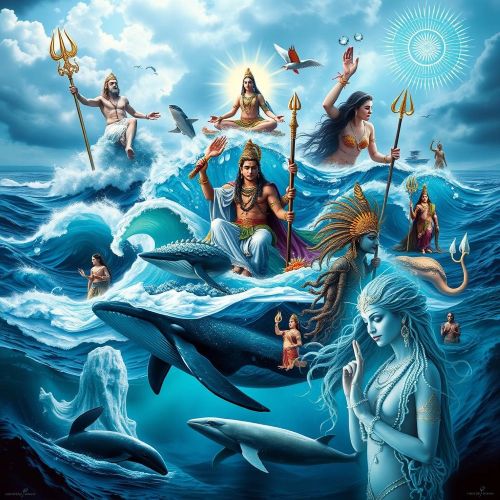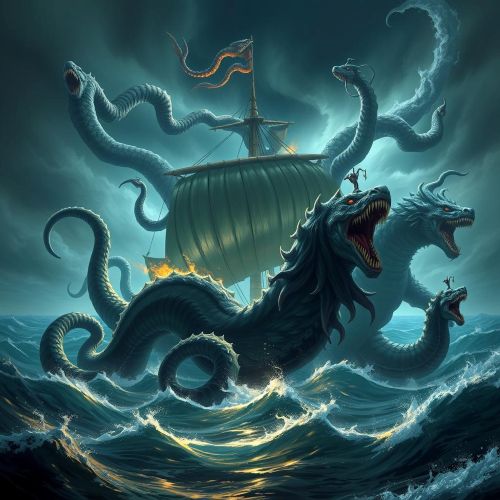Humpback Whale Symbolism and the Sacred Oceans of Polynesia
In the vast expanse of the Pacific Ocean, the islands of Polynesia are cradled by ancient waters teeming with life. Among the most revered creatures to navigate these seas are whales—giant, graceful beings that have inspired myths, chants, and spiritual reverence for generations. In Polynesian mythology, whales are not just animals of the sea; they are sacred voyagers, guides, and messengers of the gods. At the heart of this reverence lies the powerful humpback whale symbolism, which resonates deeply with Polynesian cosmology, spirituality, and cultural traditions.
Guardians and Navigators of the Ocean
Polynesian seafarers, famed for their navigation across thousands of miles of open ocean, looked to the stars, ocean currents, birds, and marine life to guide them. Among these, whales held a special place. Humpback whales, with their majestic size and melodic songs, were often seen as spiritual guardians of the ocean—beings who knew the secrets of the deep and the pathways between islands.
Legends from across Polynesian cultures—including Hawaiian, Māori, Samoan, and Tahitian traditions—depict whales as protectors of voyagers and omens of safe travel. To spot a whale during a journey was considered a good sign, a celestial reassurance that the gods were watching and offering their blessings.
Humpback Whale Symbolism in Polynesian Lore
The humpback whale symbolism in Polynesian mythology is multifaceted, encompassing ideas of protection, transformation, ancestral presence, and spiritual connection. The humpback whale’s haunting, beautiful songs are believed by many to carry the voices of the ancestors. These vocalizations are not just communication between whales—they are a bridge between the living and the divine.
In Hawaiian mythology, for example, whales are associated with Kanaloa, the god of the ocean and death. Kanaloa is often depicted as a whale or octopus and is considered a powerful force of nature. Humpback whales, which migrate annually to Hawaiian waters, are seen as his emissaries—creatures imbued with mana (spiritual power) and capable of connecting the physical and spiritual worlds.
Whales as Aumakua – Ancestral Spirits
A significant aspect of Polynesian belief is the concept of aumakua, ancestral spirits that take on the form of animals to guide and protect their descendants. For many Hawaiian families, whales are considered aumakua. The appearance of a humpback whale near a canoe or shoreline may be interpreted as a visit from a guardian spirit, offering guidance, protection, or a message from the ancestors.
This belief is mirrored across Polynesia. The Māori of New Zealand hold similar views, referring to whales as taonga—treasures of the gods and ancestors. One famous legend tells of Paikea, an ancestor who escaped death by riding on the back of a whale from Hawaiki to Aotearoa (New Zealand). Paikea’s story is a profound illustration of humpback whale symbolism as a symbol of salvation, transformation, and divine guidance.
Whale Songs and Spiritual Resonance
The humpback whale is known for its complex, melodic songs that can travel hundreds of miles through the ocean. These songs change over time and are believed to be a form of cultural learning among whale pods. For Polynesians, this musical quality has deep spiritual significance. The songs are seen as a sacred language, echoing the chants and prayers of humans and gods alike.
In some traditions, it is believed that the whales sing to maintain the balance of the ocean’s energies. Their voices are thought to resonate with the vibrations of the earth and sea, creating harmony in the marine world. This mystical connection further cements the whale’s role as a spiritual custodian of the ocean.
Ceremonial and Cultural Legacy
Whales have also found their way into Polynesian art, tattooing, and storytelling. Carvings of whales adorn temples and meeting houses, and their shapes are etched into skin as symbols of strength, journey, and spiritual kinship. In many tattoo traditions, the whale tail or full whale is symbolic of the voyager spirit, endurance, and family ties.
Rituals and ceremonies surrounding the migration of whales, particularly the humpback, are still observed today in many Polynesian communities. These migrations are seen as sacred events, and festivals or communal gatherings may be held to honor the whales’ return.
Modern Relevance of Humpback Whale Symbolism
In today’s world, where climate change and ocean pollution threaten marine life, the spiritual significance of whales takes on new meaning. For Polynesian cultures, protecting the humpback whale is more than ecological responsibility—it is an act of cultural preservation and spiritual respect.
The humpback whale continues to symbolize harmony with nature, the importance of ancestral wisdom, and the sacredness of life’s journey. As conservation efforts grow in regions like Hawaii, Tonga, and New Zealand, traditional beliefs are increasingly woven into environmental activism. Indigenous voices are playing a leading role in advocating for the protection of these sacred voyagers.
Conclusion
In Polynesian mythology, whales—especially the humpback—embody the essence of sacred travel, ancestral connection, and divine communication. The humpback whale symbolism continues to inspire reverence not only as a mythological figure but as a living, breathing emblem of the Pacific’s enduring spiritual heritage. As these majestic beings glide through the oceans, they remind us of the stories carried by waves, the wisdom of the ancestors, and the power of the sea to connect, protect, and transform.
No posts were found.









